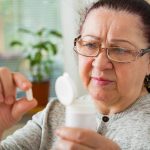 Medical adherence is a crucial issue, especially among elderly patients who often have a complex medical regime that requires several pills per day. What role can technology play in helping them keep on top of things, and is the role welcomed by the patient?
Medical adherence is a crucial issue, especially among elderly patients who often have a complex medical regime that requires several pills per day. What role can technology play in helping them keep on top of things, and is the role welcomed by the patient?
That was the question posed by a new study from Queen Mary University of London and University of Cambridge. It examined the response to new technologies, including wearable devices and mobile apps, that provide timely reminders and support in taking medicine on time.
The majority of over 65s in the focus group thought that such technologies would be valuable and help them with the various practical aspects of taking their medicine. For instance, people responded that their memory wasn’t as good as it used to be, so reminders were invaluable, both in terms of reminding you to take the tablet, and reminding you that you have already taken it for that specific day.
In terms of the medium used to deliver the reminder, whilst many of the group were familiar with smartphones and therefore comfortable receiving reminders via their phones, all were comfortable using watches, and so smartwatches were perceived as the best medium for delivery.
“It’s a continuation of what we’re familiar with instead of something that we’re not familiar,” one participant said.
Maintaining face time
A number of other concerns emerged from the sessions. For instance, some were worried about losing the social interactions they have with their medical team, which was often so valuable in terms of staving off loneliness. There were also concerns about data security and becoming dependent on the technology, whilst cost issues worried many.
“These findings have highlighted that people over 65 on cardiovascular medications are willing to consider technology to help with practical aspects of their day-to-day medicine taking, such as getting reminder alerts and monitoring doses taken, either themselves or by carers and clinicians,” the researchers say. “In clinical consultations about medicine taking, healthcare professionals can explore technologies familiar and easily accessible to patients as a way to ensure good adherence. To this end additionally checking on common concerns, like worries about data security, becoming dependent on technology and consequences of technological failures can be beneficial.”